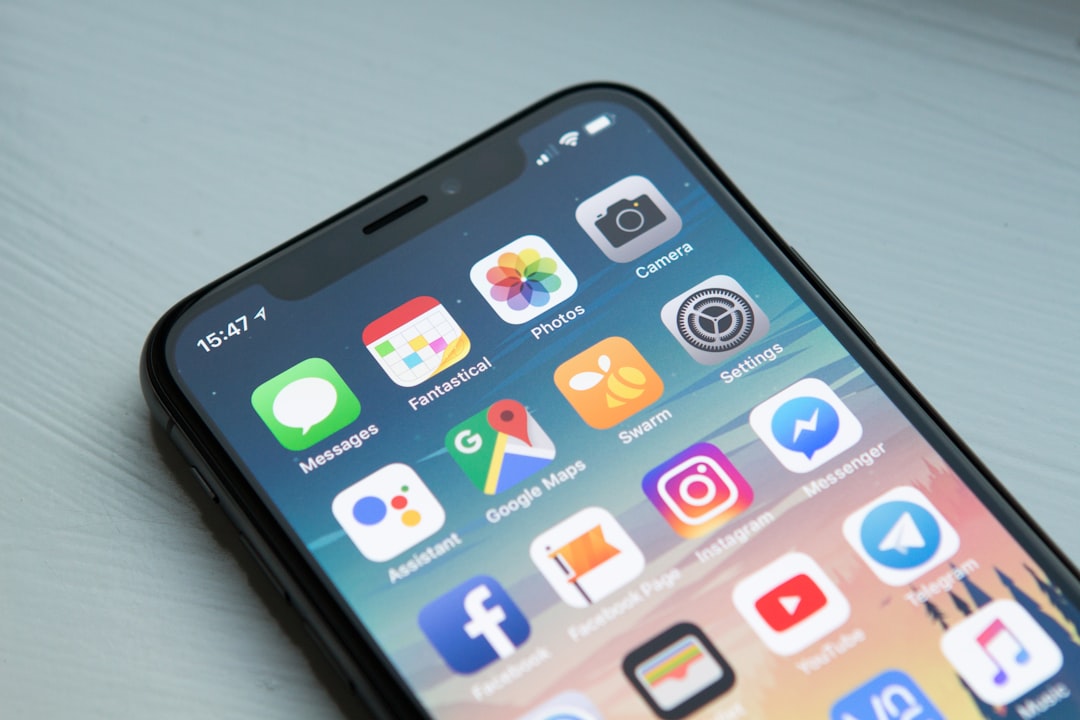Why Custom Mobile Applications Are Essential
Custom mobile application development is about creating apps specifically tailored to a business’s unique needs. Unlike off-the-shelf solutions, custom apps offer personalized features and functionalities that cater directly to a particular audience. This means higher security, better performance, and seamless integration with existing systems.
Quick Overview:
1. Custom apps provide tailored solutions not found in generic software.
2. They offer enhanced security measures.
3. High scalability and flexibility adapt as your business grows.
4. Custom apps convert visitors into loyal customers, boosting sales.
5. They foster better customer engagement and efficiency.
In today’s digital-first world, having a custom mobile app can set your business apart from the competition. Off-the-shelf solutions often fail to meet all the specific needs of a business, leaving out crucial functionalities. Custom apps, like those we’ve developed for companies such as Cardless, show how tailored solutions lead to remarkable results—completing an initial build in just three months and delivering a unique experience for users.
Hello! I’m Umair Majeed, CEO of Datics AI. With a background in custom mobile application development, I’ve helped businesses unlock their full potential. My team and I focus on creating bespoke solutions that ensure our clients stay ahead of the curve.
Ready to dive deeper? Let’s explore more about the benefits and processes of Custom Mobile Application Development.
What is Custom Mobile Application Development?
Definition
Custom mobile application development is the process of designing and building mobile apps tailored to meet the specific needs of a business or individual. Unlike off-the-shelf solutions, custom apps are bespoke and crafted from scratch. This allows them to offer unique functionalities and user experiences that align perfectly with the intended purpose.
For example, think of WhatsApp or Spotify—these apps were built to serve specific needs and have unique features that set them apart from generic solutions.
Key Benefits of Custom Mobile Application Development:
- Specific Needs: Custom apps are designed to meet the exact requirements of your business.
- Unique Functionalities: They offer features that off-the-shelf apps can’t match.
- Personalized User Experience: Tailored apps provide a better user experience by addressing specific user preferences and behaviors.
Types of Custom Apps
When it comes to custom mobile application development, there are three main types of apps to consider:
- Custom Native Mobile Apps
- Custom Web Apps
- Custom Hybrid Apps
Custom Native Mobile Apps
Native apps are built specifically for one platform, like iOS or Android, using platform-specific programming languages (e.g., Swift for iOS, Kotlin for Android). They can fully utilize the device’s hardware and software capabilities, offering the highest performance and best user experience.
Best For: Apps requiring intensive graphics, complex animations, or high responsiveness, such as gaming or photo-editing apps.
Examples: WhatsApp, Spotify
Custom Web Apps
Web apps are essentially websites that look and feel like native apps but run through a web browser. They are developed using standard web technologies like HTML, CSS, and JavaScript.
Best For: Businesses wanting to deploy an app quickly and cost-effectively, or those looking to enhance the capabilities of their existing mobile software for the web.
Examples: Google Docs, Netflix
Custom Hybrid Apps
Hybrid apps combine elements of both native and web applications. They are built using web technologies and then wrapped in a native container, allowing them to be installed on mobile devices like native apps.
Best For: Projects needing to reach a wide audience across different platforms without the higher cost and longer development time associated with building separate native apps for each platform.
Examples: Instagram, Gmail
Each type of custom app has its own set of advantages and ideal use cases. Understanding these can help you decide which type of app is best suited for your specific needs.
Ready to learn more? Let’s delve into the benefits of custom mobile application development.
Benefits of Custom Mobile Application Development
Enhanced Security Measures
Custom mobile applications offer enhanced security measures that off-the-shelf solutions often lack. By building an app from scratch, you can implement specific security protocols tailored to your business needs. This includes data encryption and compliance with various OS and API requirements. For example, a custom app can use advanced encryption to protect sensitive user data, reducing the risk of breaches.
“In the past ten years, more than 300 data breaches have occurred, causing a global loss of over 100,000 records.” This statistic underscores the importance of robust security measures in custom app development.
High Scalability and Flexibility
One of the key benefits of custom mobile apps is their high scalability and flexibility. Off-the-shelf apps often struggle to handle increased data loads as your business grows. Custom apps, however, are designed to scale with your business, ensuring optimal performance even as user numbers and data volumes increase.
For instance, when we developed a custom app for Cardless, we ensured it could handle their growing user base without compromising performance.
Simpler Maintenance
With custom mobile apps, you have full control over the maintenance process. Unlike generic solutions, where you depend on third-party updates, custom apps allow you to implement continuous development and updates as needed. This ensures that your app remains functional and up-to-date, reducing dependency on external vendors.
Competitive Edge in the Market
Custom apps provide a competitive edge by offering unique features tailored to your business. Unlike generic apps, which cater to a broad audience, custom apps are designed to meet specific business needs. This differentiation can be crucial for startups looking to stand out in a crowded market.
For example, a custom app for a fintech startup might include unique financial tools not available in standard solutions, giving it a significant market advantage.
Improved Efficiency and Productivity
Custom mobile apps can significantly improve efficiency and productivity by optimizing workflows and automating repetitive tasks. For instance, a custom CRM app can streamline customer data management, allowing your team to focus on strategic tasks.
According to a case study on Spotify, leveraging custom software helped them efficiently handle a massive music library and user base, enhancing both operational productivity and user experience.
Better Integration with Existing Systems
Custom mobile apps offer better integration with your existing systems, ensuring data consistency and operational cohesion. Whether it’s integrating with your CRM, ERP, or other business systems, custom apps can be designed to fit seamlessly into your technology ecosystem.
This integration reduces data silos and ensures that all your business processes work together smoothly.
Personalized User Experience
Finally, custom mobile apps deliver a personalized user experience. Tailored to meet the specific needs of your users, these apps can significantly boost user satisfaction, engagement, and retention rates. Personalized features, such as customized content and user-specific recommendations, make the app more engaging and useful.
According to Forbes, mobile apps increase sales and project revenue, with customers spending more time and money on apps compared to mobile sites.
Ready to dive deeper into the process? Next, we’ll explore the step-by-step process for developing custom mobile apps.
Step-by-Step Process for Developing Custom Mobile Apps
Step 1: Research and Planning
Before diving into custom mobile application development, it’s crucial to lay a solid foundation. Start with market analysis to understand the current landscape and identify gaps your app could fill. Conduct competitor analysis to see what others are doing right and where they fall short.
Creating user personas helps visualize your target audience. Factors like age, location, and interests can guide your design and development strategy. Document everything, from functional requirements to tech stack choices. This includes backend technology, database structure, and third-party integrations.
If you lack an in-house team, consider outsourcing. Reliable IT support can make or break your project. For more on this, check our IT outsourcing guide.
Step 2: Design the Custom App
Once the groundwork is laid, move on to designing your app. Start with low-fidelity wireframes to outline basic layouts and user flows. Progress to detailed mockups that incorporate your app’s visual design elements.
Tools like Figma are great for collaborative design and prototyping. Conduct user testing sessions using platforms like InVision or Marvel to collect feedback on usability and design appeal.
You can outsource the design phase if it better suits your needs. For more on app design and associated costs, read our blog post.
Step 3: Develop Your Custom App
Now it’s time to turn those designs into a functional mobile application. Focus on building a Minimum Viable Product (MVP) first. This will have your app’s core functionalities and allow you to test your product’s value proposition with real users early on.
Adopt an agile framework to organize development work into sprints. Regular stand-ups and sprint reviews encourage adaptability.
Development timelines can vary. Factors like developer expertise and app complexity can stretch the timeline from 3-4 months to a year or more. For more details, check our dedicated article.
Step 4: Test for Quality Assurance
Testing is like a wedding rehearsal for your app. Implement automated testing early to detect and fix bugs. Tools like Appium can automate testing for mobile apps.
A beta release is crucial for gathering user feedback. Platforms like TestFlight for iOS and Google Play beta feature for Android are excellent for distributing your beta app.
Conduct thorough security testing to identify vulnerabilities. Ensure your app complies with data protection regulations and industry best practices.
Step 5: Deploy and Launch
Deployment is the most exciting part. But before you launch, run through a checklist:
- Verify all app functionalities.
- Conduct compliance checks.
- Perform a final security audit.
- Document all APIs.
- Confirm backend infrastructure scalability.
For the Apple App Store, comply with Apple’s App Store Review Guidelines. Use Xcode to upload your app to App Store Connect. For Google Play, check against Google Play Developer Policy Center guidelines and upload your APK or App Bundle files to the Google Play Console.
Step 6: Refine and Maintain the App
The journey doesn’t end at launch. Establish feedback loops and continuous deployment mechanisms. Collect user feedback within the app and monitor app store reviews. Use analytics tools to track user behavior and engagement metrics.
Set up Continuous Integration/Continuous Deployment (CI/CD) pipelines to automate build, test, and deployment processes. Tools like Jenkins or GitHub Actions can simplify regular updates, ensuring your app remains relevant and functional over time.
With these steps, you’re well on your way to developing a successful custom mobile app. Next, we’ll explore monetization strategies to make your app a revenue driver for your business.
Monetization Strategies for Custom Apps
When you invest in custom mobile application development, you want to ensure that your app not only meets user needs but also generates revenue. Here are some effective monetization strategies:
In-App Advertising
In-app advertising allows you to display ads within your app. You earn revenue from advertisers based on user clicks, views, or impressions.
- Example: Many free apps, like games and social media platforms, use this model.
- Fact: Users spend 3 to 4 times longer in mobile apps than on desktops, making in-app ads highly effective.
Subscription Models
With subscription models, users pay a recurring fee, usually monthly or yearly, to access your app or its premium features.
- Example: Spotify and Netflix use subscription models to offer continuous access to their content libraries.
- Stat: The average order value on mobile apps is 140% higher than on mobile sites.
In-App Purchases
In-app purchases let users buy virtual goods, additional content, or enhanced functionalities directly within the app.
- Example: Games like Candy Crush offer in-app purchases for extra lives or special items.
- Quote: “Mobile apps increase sales and project revenue in the e-Commerce and m-Commerce segments.”
Paid App Downloads
Paid app downloads require users to pay a one-time fee to download your app, giving them full access to its content and features.
- Example: Apps like Minecraft and Facetune charge an upfront fee for download.
- Fact: The conversion rate for apps is higher than for mobile sites.
Sponsorship and Partnerships
Your app can earn revenue through sponsorship and partnerships by offering brands a platform for targeted exposure to your user base.
- Example: Fitness apps partnering with health brands to offer exclusive content or discounts.
- Case Study: JobGet‘s custom app reduced job search time from days to minutes, attracting significant funding.
Next, we’ll answer some frequently asked questions about custom mobile application development.
Frequently Asked Questions about Custom Mobile Application Development
How to make a custom mobile app?
Creating a custom mobile app involves several key steps:
- App Concept: Start with a clear idea. What problem will your app solve? What unique value will it offer?
- Monetization: Decide how you will make money. Options include in-app advertising, subscription models, in-app purchases, and sponsorships.
- Features: List the essential features your app needs. Think about what will make it stand out.
- User Journeys: Map out how users will navigate through your app. This helps in creating a seamless experience.
- Wireframes: Create low-fidelity wireframes to visualize the basic layout and user flow. Tools like Figma can help here.
- User Interface: Design high-fidelity UI prototypes. This includes colors, fonts, and images to make your app visually appealing.
- Test Environment: Set up a test environment to catch bugs early. Automated testing tools like Appium can be useful.
- App Stores: Prepare for submission to app stores. Ensure your app meets guidelines for platforms like the Apple App Store and Google Play.
How much does it cost to build a custom mobile app?
Development cost for a custom mobile app can vary widely:
- Small Apps: Simple apps with basic functionalities can cost between $10,000 to $50,000.
- Medium-Sized Apps: More complex apps with additional features and integrations can range from $50,000 to $200,000.
- Complex Apps: Apps with advanced features like GPS, push notifications, and real-time data sync can cost $200,000 and above.
Factors affecting cost:
– Complexity: The more features and integrations, the higher the cost.
– Development Team: Costs vary based on the expertise and geographic location of your team.
– Maintenance: Don’t forget ongoing costs for updates and bug fixes.
What is the best custom mobile app development company?
Choosing the best custom mobile app development company involves several considerations:
- Top Companies: Look for companies with a strong portfolio and experience in your industry.
- Industry Leaders: Companies that are recognized for their innovation and quality are often a safer bet.
- Service Providers: Ensure they offer end-to-end services, from initial consultation to post-launch support.
Key factors to consider:
– Technical Skills: Ensure the company has expertise in the technology stack you need.
– Customer Reviews: Check platforms like Clutch.co for reviews and testimonials.
– Development Methodologies: Understand their process. Agile or Scrum methodologies are often preferred for their flexibility.
– Security Measures: Especially important for apps handling sensitive data.
By following these guidelines, you can find a reliable partner to bring your app idea to life.
Conclusion
Custom mobile application development offers numerous benefits that can significantly enhance your business operations. From personalization to cost-effectiveness, and from high security to continuous support and maintenance, the advantages are clear.
At Datics AI, we specialize in creating personalized software solutions that align perfectly with your business needs. Our team of experts works closely with you to ensure that the software we develop not only meets but exceeds your expectations.
Why Choose Datics AI?
- Tailored Solutions: We understand that every business is unique. That’s why we create software designed specifically for your requirements, giving you a competitive edge.
- Long-Term Value: With no recurring license fees and the ability to develop iteratively, our custom software solutions are more budget-friendly in the long run.
- High Security: We adhere to the highest security standards, ensuring your data is always protected.
- Continuous Support: Our dedicated team offers ongoing technical support and maintenance, ensuring your software remains reliable and up-to-date.
Business Value
Investing in custom software development with Datics AI can drive significant business growth. Our solutions are designed to streamline your operations, improve efficiency, and provide you with unique functionalities that off-the-shelf software simply can’t offer.
By choosing Datics AI, you’re not just getting a software solution; you’re getting a partner committed to your success. We focus on delivering high-quality, scalable, and secure software that adapts to your evolving business needs.
Ready to transform your business with custom software? Contact us today to get started!
In summary, the benefits of custom software development are manifold, and with the right partner like Datics AI, you can unlock unparalleled business value.




